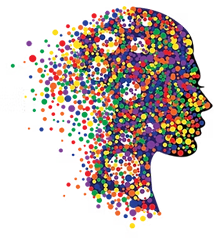

Helping Kids Reach Their Potential with Autism Therapy
When parents first hear that their child may be on the autism spectrum, it can raise more questions than answers. What kind of support is available? Which therapies actually help? And how can you give your child the best chance to thrive? As a starting point, taking the time to learn about autism therapy for children is an important step toward finding the right support.
Why Therapy Early on is so Important
Early intervention is widely recognised as one of the most effective ways to support children with autism. Therapy introduced in the preschool or primary school years can improve communication, boost confidence, and reduce difficulties in everyday routines. Even small signs, like challenges with eye contact, language delays, or a strong reliance on routines can be worth exploring with a professional.
Common Types of Therapies Families May Encounter
You’ll usually come across a range of therapy styles, each with a different focus:
- Speech therapy, which is designed to help children develop language, conversation, and non-verbal skills.
- Occupational therapy, which supports sensory needs, improves motor skills, and makes everyday routines much easier to manage.
- Behavioural therapy, that helps children form positive habits and come up with strategies to reduce frustrations.
These are familiar forms of support, and many families can find them very helpful. But autism therapy doesn’t stop there. At NCAU, we focus is on moving beyond surface behaviours and look at addressing the neurological patterns that influence how a child learns and interacts.
Our Neuroscientific Approach
What makes NCAU’s autism therapy unique is its foundation in neuroscience. By using advanced brain mapping, we can see how a child’s brain processes information and identify the areas where extra support may help. This then opens the door to more personalised treatment plans that go deeper than generalised therapy methods.
If you can target the neurological root causes of communication, social, or behavioural challenges, this approach gives children a stronger foundation for long-term growth. For parents, it means knowing therapy is designed around their child’s unique brain activity, not just outward symptoms.
Support at Home and in School
For therapy to be most effective, it’s very important that support is provided at home and at school. Parents and teachers can help reinforce progress by encouraging flexibility in a child’s routines, practising social turn-taking, and providing calming strategies for sensory sensitivities.
If everyone can work together as a team (therapists, families, and educators) children feel supported and secure, which can lead to better progress.
Positive Change
Autism therapy is designed to create a positive change and help children build the skills they need to live confidently and happily. If they are given the right guidance, children with autism can develop much stronger communication skills, form friendships, and enjoy independence in their own personal way.
For families looking to explore tailored support you can look at our autism therapy designed specifically for children and find out about our research-backed, neuroscience-led approach which is designed to help children reach their full potential.

Leave a Reply